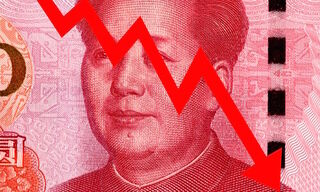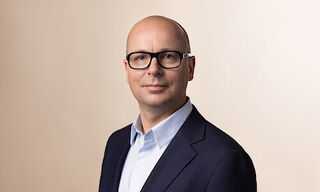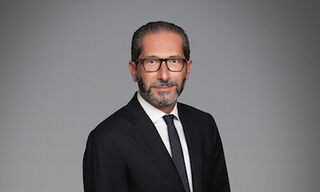The former CEO of Credit Suisse is back – not a surprise to anyone who knew the work-obsessed banker. What is surprising is the billion-dollar bet he is making on a Wall Street model heading for extinction.
Brady Dougan is a died-in-the-wool investment banker who spent 25 years at CSFB and later Credit Suisse, after a stint at Banker’s Trust. Famously level-headed and unemotional, one of his rare public shows of feelings came when speaking about Credit Suisse as his «home».
According to a person close to him, Dougan was blindsided to be replaced by Tidjane Thiam last July. So his return to Wall Street, like those of other former top executives like ex-Barclays head Bob Diamond and former UBS investment bank head Huw Jenkins, is hardly surprising.
Numerous investment bankers have left big Wall Street houses to form boutiques: former UBS leveraged finance banker Ken Moelis started his in 2007; Centerview was co-founded by former UBS and Dresdner Kleinwort Wasserstein investment bankers, and the Zaoui brothers have run their way up M&A league tables as a stand-alone outfit.
Slavish Credit Suisse Devotion
What sets Dougan apart from his rivals is both his ability to attract big money as much as how he plans to use it on a dying Wall Street model.
Dougan, long known for a punishing work ethic and slavish devotion to the Swiss bank which made for a somewhat awkward personal style, is a derivatives banker who never worked in M&A; he doesn’t have the intimate C-Suite relationships that the Zaouis and the boutique crowd do.
He has few pursuits, outside of a board role at a biotech firm co-founded by his wife, Yale professor Laura Niklason, and one with a charitable foundation linked to his family.
What he does have is international clout, in the U.S. an untainted reputation and track record as a powerful Wall Streeter, time, money and an appetite for risk.
Qatar, Saudi Arabia Connections
The Illinois-born banker took over as head of Credit Suisse one year before the financial crisis, but wasn’t hauled before an angry Congress in 2009 over a $700 billion bailout, like rivals including Goldman Sachs’ Lloyd Blankfein and J.P. Morgan’s Jamie Dimon.
Instead, Dougan went to Qatar and Saudi Arabia, home to long-time Credit Suisse shareholders – the Qatari government and the wealthy Olayan family. Both upped their share in the Swiss bank in 2008, averting the need for a federal bailout like UBS received.
It is this type of fund-raising that Dougan has once again tapped to start his new venture – which aims to rival big Wall Street houses for principal investments, investment banking and trading, including proprietary buying and selling.
Return to Scene of Crime
Remarkably, Dougan is making a return to the capital-eating businesses that made his life at Credit Suisse difficult, as regulators heaped on additional rules and capital requirements following the financial crisis. Thiam, his successor, has spent most of his first year in the job dismantling Dougan’s investment banking legacy at Credit Suisse.
So why is Dougan, unrepentant, returning to the scene of the crime, so to speak? One reason is the billions in Middle East funding, which is far more lavish seeding than other boutiques have drawn. Nevertheless, it represents a modest investment for the new backers, a network ultra-wealthy families as well as government funds.
Their hope is presumably that Dougan, and not the big banks or private equity houses they have turned to until now, will open doors for them on Wall Street.
The other reason is that Dougan is betting that his venture, roughly six months in the doing, can undercut the pricing offered by Wall Street banks, which are overseen by the Federal Reserve and burdened by capital requirements as firms relevant to the financial system. Dougan, long a proponent of digitization’s growing power in investment banking, is also expected to use technology to offer more efficient services than traditional securities houses.
$90 Million Payday
He is returning to an operating model that effectively no longer exists on Wall Street, as plenty of his fellow financiers like former Deutsche bank co-head Anshu Jain have discovered painfully.
To be sure, there is little clarity on the scope of Dougan’s new venture, which doesn't even have a name yet, much less how it would be regulated or financed beyond the initial $3 billion seed. Thus, it is impossible to forecast how his attempt to replicate a capital-intensive, trading and principal investment bank on a far smaller scale than Wall Street will pan out.
Besides his clout and influential Middle Eastern connections, Dougan also has his own money – lots of it. He was famously paid nearly 90 million Swiss francs in one year by Credit Suisse, under pay plans from two separate years. Dougan is expected to invest his own money in the firm as well as, via debt, leverage the $3 billion initial investment.


























